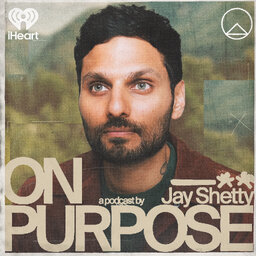7 Strategies to Stop Getting Drained by Your Problems & Focus on Possibilities
You might have heard the buzz about positive thinking, but have you ever wondered if it truly works?
People are often encouraged to visualize their goals, maintain an upbeat attitude, and affirm positive outcomes.
Today, I am going to share the power of shifting your thinking and the impact it has on our lives. We'll begin by dissecting the concept of thinking into three distinct types. It's an eye-opening revelation that sets the stage for our main topic - the Possibility Mindset. This mindset is a game-changer, a shift in thinking that can transform the way you approach life.
But, of course, not all thinking is beneficial. We'll delve into the Problem Mindset, dissecting the seven key elements that hold you back from your full potential. From only seeing the issues to choosing your words carelessly, we'll uncover how these habits can discourage not only yourself but also those around you.
The ultimate question we'll explore is the difference between talking about big things and actually doing them. So, get ready to challenge your thinking and embrace the possibilities that lie ahead.
In this episode, you'll learn:
What is possibility thinking
How to stop being a problem thinker
How to develop the possibility thinking
How to level up your doer mindset
Your mindset is a powerful tool, and by the end of this episode, you'll be armed with the knowledge to wield it effectively in your journey towards success.
With Love and Gratitude,
Jay Shetty
What We Discuss:
00:00 Intro
01:19 Positive Thinking Doesn’t Work?
03:13 The Three Types of Thinking
04:23 What Is The Possibility Mindset?
05:28 Do You Have A Problem Mindset?
09:19 #1: You Only See The Issues
12:02 #2: Doing Things In The Mind Alone
13:08 #3: Nothing Is Never Enough
15:56 #4: You’re Likely To Discourage Others
18:12 #5: Choosing Words Carelessly
20:27 #6: Thinking Like An Expert
20:56 #7: Talking About Big Things vs Doing Big Things
 On Purpose with Jay Shetty
On Purpose with Jay Shetty


